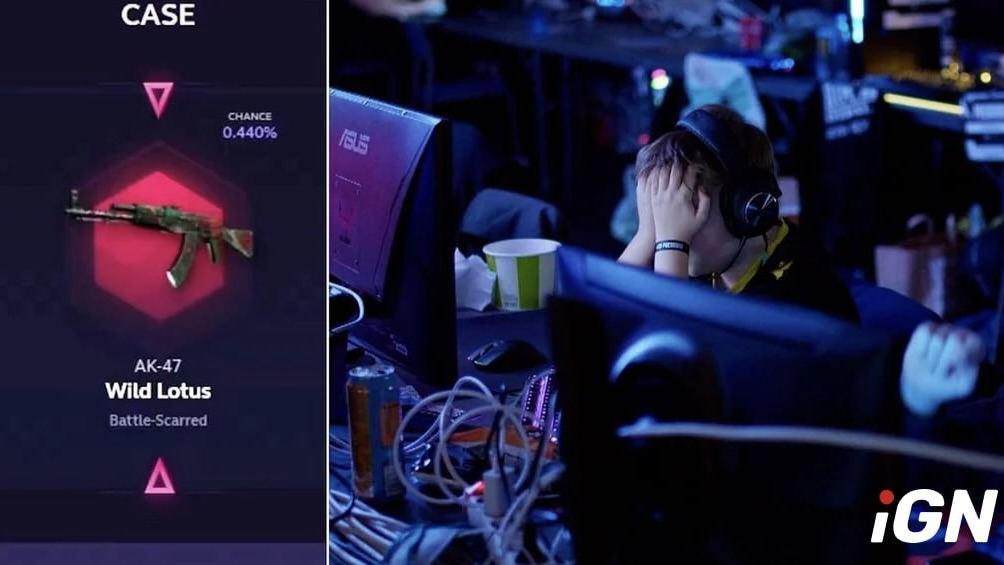Teens in the UK Increasingly Drawn into Skin Gambling

The UK Department for Digital, Culture, Media and Sport (DCMS) has published a rapid evidence review of the skin gambling sector. The study covered 54 websites, analysing traffic patterns, site features and regulatory practices. In February 2025, these sites recorded a combined 6.9 million unique visits, of which 3.93% came from the UK (around 271,000 visits).
What Is Skin Gambling?
Skin gambling refers to betting with virtual in-game items (“skins”). These items hold real-world value because they can be traded or sold on third-party platforms. In effect, skins have become a form of virtual currency that draws users into gambling-like behavior.
Unlike licensed online gambling, which uses real money under regulated frameworks, skin gambling usually occurs on unlicensed sites with little oversight or age verification.
The Scale of the Phenomenon
- 6.9 million unique visits — total global traffic to skin gambling sites in February 2025
- 3.93% of traffic from the UK (271,200 visits)
- 75.58% of users are male
- Main age group: 18–24 (44.85%)
- 70.9% of respondents (9,200 surveyed) first started playing between ages 13–17
- 82.26% said skin gambling was their first experience with gambling
- Children aged 11–14 are more than twice as likely to participate as young adults aged 22–24. Surveys show that 4% of 11–12-year-olds and 7% of 15–16-year-olds had gambled in the past month
- Average time spent per visit is 6 minutes 21 seconds, compared to 7 minutes 37 seconds on licensed platforms
- 66% of traffic to skin gambling sites comes from desktop and 34% from mobile. For traditional gambling, the ratio is reversed: 77% mobile and 23% desktop
- Top sites surpass well-known betting brands such as Betfred, BetVictor and Betway, although major operators like bet365 remain far ahead (57.6 million visits)
- Average monthly traffic across all skin gambling sites was about 620,000 visits
Table: Key Differences Between Skin Gambling and Traditional Online Gambling
| Factor | Traditional Online Gambling | Skin Gambling |
|---|---|---|
| Currency | Real money | Virtual in-game items (“skins”) |
| Regulation | Licensed platforms | Typically unregulated |
| Age Verification | Mandatory | Minimal or absent |
| Main Audience | Adults | Teens and young adults |
Main Risks
According to DCMS and independent studies, skin gambling mechanics closely resemble traditional gambling features:
- “Near-miss” effects, typical of slot machines
- High event frequency (fast-paced games)
- Illusion of control
- “Player vs player” betting — encourages risky behavior
Research consistently shows that participants in skin gambling display higher rates of problem gambling, particularly with games of pure chance.
Lack of Player Protection
Research highlights several issues:
- No reliable age verification on any of the audited websites
- 95% of platforms only require a Steam login (minimum age: 13)
- 25% offered a responsible gambling page, but often with poor or outdated content
- 65% provided self-exclusion tools, but only 5% offered deposit limits
Deposits are typically made through skins, cryptocurrencies, gift cards and layered “virtual currencies” that obscure the real cost of bets. Withdrawals are usually processed in skins or crypto.
The Role of Esports and Streamers
Esports tournaments and streamers play a major role in promoting skin gambling. Over 40% of the top 300 CS2 streamers have sponsorship deals with operators, embedding gambling into gaming culture for younger audiences.
Regulatory Challenges
Under UK law, skin gambling is classified as a form of gambling. However, most sites operate offshore without licenses, making enforcement and consumer protection difficult.
Key issues include:
- Lack of international regulation
- Weak protection for children and teens
- Illegal practices involving cryptocurrencies and VPNs
Conclusions and Recommendations
Skin gambling has moved beyond gaming and developed into a distinct form of gambling. DCMS recommends:
- Formally classifying skin gambling as gambling
- Introducing mandatory age verification
- Applying responsible gambling measures such as deposit limits and self-exclusion
- Establishing international regulatory standards
